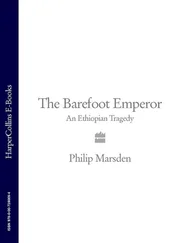There was the smell of an enclosed hot room, and something alongside, unexpected. Oh, he thought, that’s the smell of a deathbed. But it wasn’t unpleasant, or particularly human, apart from its warmth; it smelt of something unfamiliar, something welcome, and some blocking agents on top, floral and medical and antiseptic. His father’s room had its own smell, too, a masculine one of wood and shoe polish. Duncan went in, closing the door behind him softly. The room was very dim. But he didn’t want to turn the light on and startle his father. He groped around the room, to the side of his father’s head, and in a moment he banged against the winged armchair that had always been on the landing until now, in case anyone tired themselves out climbing the stairs. He felt on the seat to make sure there was no medical equipment – he had a dread of syringes and containers, of cardboard bedpans – and sat down cautiously. He could hear his father’s breathing. Not dead yet. He sat for a few minutes, and shortly his eyes got used to the dim light, as his nose got used to the room’s lingering odours of illness and cure. His father’s profile was sharp and drawn; his hands were under the counterpane, making a pulling gesture. Duncan waited. There might be no need to remain. He had seen his father now. He would wait only fifteen minutes more. But just then, his father gave a deep, rasping breath, as if choking, and woke. His eyes were still closed, but there was a change in his being and his breathing. He gave the impression of being disappointed to wake and find himself still alive.
‘Who’s there,’ his father said. ‘I can’t see.’
‘It’s me,’ Duncan said. Then there was a pause, a lingering silent question, and Duncan had to say, ‘It’s Duncan, Daddy.’
‘Oh, Duncan,’ his father said. ‘I thought you were in Italy. Well, better late than never.’
‘I came as fast as I could,’ Duncan said. ‘I only heard two days ago, and the earliest flight I could get was last night and today. I had to change in Paris – there was no direct flight.’
‘Heard what,’ his father said. ‘That’s what I’d like to know.’
‘Just heard,’ Duncan said. ‘I came over as quickly as I could.’
‘Always in a great rush,’ his father said. ‘Always not doing things properly because of something that’s turned up in an emergency. You were the same as a little boy.’
‘Oh, I don’t know,’ Duncan said, finding himself unable to think of what he should have done to preserve his father’s sense of the right thing to do, while simultaneously coming as soon as possible. ‘I do my best.’
‘Have you seen your sister?’ Samuel said. ‘I was expecting to see her, as well.’
‘Are you sure she hasn’t been?’ Duncan said. ‘I’m sure she’s been to see you. Hasn’t she?’
‘What do you think I am?’ his father said. His voice was dry and rasping; the heat in his throat, its pain, tangible. His eyes were still closed; the annoyance of his existence, his ways as if a headmaster, surviving until his last moments. Duncan reflected that anyone else, he would pass him a glass of water without a request. His father would demand one, and then expect the person to put up with being called an idiot for not having one poured out ready. He waited. ‘Do you think I can’t remember if Domenica has been or not? I’m ill, not stupid.’
‘Sometimes you’re not quite sure of things when you’re as ill as this,’ Duncan said.
‘She hasn’t been,’ Samuel said. ‘I don’t suppose it’s important to her.’
And then, to Duncan’s horror, his father raised his hands to his face in a gesture of self-benediction, his palms over his eyes, and began to sob, juddering. ‘My life’s been for nothing,’ his father said. ‘My life, and my children can’t wait for me to die.’
‘You don’t need to think that,’ Duncan said. ‘Don’t say things like that.’
His father’s noise of weeping would soon bring the nurse into the room or, worse, his sisters. But then downstairs a harsh call came; a barbaric yawp and shriek. It seemed to interest or divert his father, and, just as a child’s tantrum can be pushed to one side by an entertainment, so his father paused in his fit, just gave one more shudder, and lowered his hands. ‘I keep hearing that noise,’ he said. ‘I don’t know what it is. It’s like an animal crying.’
‘It’s a parrot,’ Duncan said. ‘It’s a black parrot that Ruth brought. Or Rachel. I don’t know which one.’
‘It would be Rachel,’ Samuel said. ‘She has a parrot, a black one. Why has she brought it here? I don’t want it here. I don’t want that noise downstairs.’
‘I don’t know,’ Duncan said. ‘I thought she must have asked you. I’ll tell her to take it home again.’
‘Oh, she won’t do that,’ Samuel said. Then all at once he fell asleep; so instantly that Duncan thought it must be a coma or even a final collapse. He went about the room moving things, putting off the moment when he must go outside and say that his father seemed to have taken a turn for the worse. In curiosity rather than anything else, he turned on the bedside lamp. It was the same pink fringed one his mother had always had. The light showed an old, unshaven man, the cheeks sunk in deep under the cheekbones and the eye sockets like a skull’s, falling profoundly into worlds of darkness. The skin was yellow and slack, as if its possessor had slept long under bridges, living on methylated spirits. Only the cleanliness of the dark blue pyjamas with white piping, and the neatness of the sheets, suggested anything but the derelict. It was as if an old tramp had been taken from his streetside cardboard box by a benevolent, given a bath and set down within clean linen to die. Duncan resisted the temptation to run his hand down the side of his father’s face. There was no temptation to kiss it. But the thought came to mind like this: what would it be like to have a father who, on his deathbed, you wanted to kiss? The light had disturbed Samuel in his sudden sleep, and now he woke, raising his fists to his eyes and rubbing them, yawning like a cat, turning about to see what the disturbance was.
‘Oh, it’s you again,’ Samuel said. ‘I didn’t know if it was really you. I keep thinking people are here. You should have stayed in Spain. No, in Italy, that’s where you’ve been.’
‘I’ve come back,’ Duncan said. ‘I’m not going to tire you out. I’ll come back tomorrow.’
‘Yes, perhaps that’s best,’ Samuel said.
(And downstairs Rachel was turning to her sisters and saying what she should have said hours, or days ago; saying that she had, in fact, not got round to taking anything to the solicitor’s, that she was rather afraid that the will was upstairs still, in poor Samuel’s keeping. ‘But he won’t know about that, the son, will he?’ she was saying plaintively, and Ruth was shaking her head, and Rebecca was shaking her head, too.)
Samuel looked around conspiratorially. ‘I’ll tell you something important tomorrow, if you come back.’
‘You can tell me now, if you like,’ Duncan said. ‘I don’t mind listening.’
‘It’s not a question of whether you want to listen or not,’ Samuel said. ‘It’s whether I want to tell you. It’s my business.’
‘Well, you can tell me or not tell me,’ Duncan said. ‘But if I were you, I wouldn’t put anything much off until tomorrow that you want people to know.’
‘You wouldn’t, wouldn’t you?’ Samuel said. But doubt set in, and he started saying ‘You wouldn’t, would you – would, would, wouldn’t, should,’ until he could no longer decide what it was normal to say, and he fell silent.
‘You know,’ Duncan said, quite calmly, ‘it’s very bad luck, getting lung cancer like that. Not smoking, ever, and then you get lung cancer. I don’t know that that’s supposed to happen.’
Читать дальше












